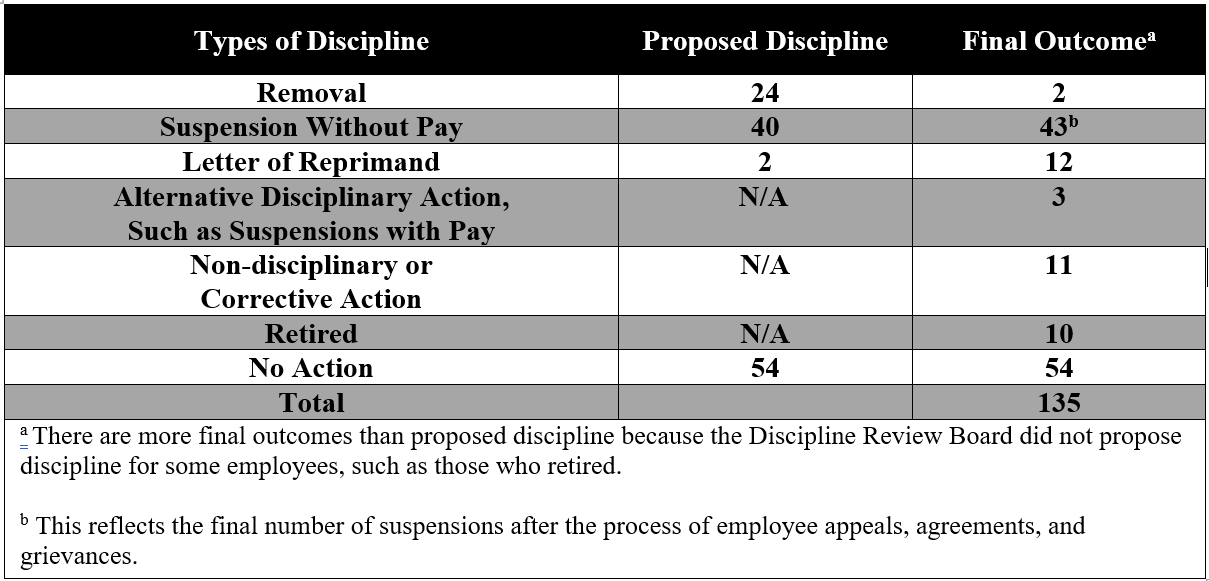CBP Reduced Proposed Discipline, Allowing Agents Who Committed Misconduct to Continue to Work with Migrants
The Committee's investigation found that 60 agents committed misconduct according to CBP's own disciplinary process. However, CBP reduced proposed disciplinary measures for almost all of these agents, who continue to work with migrants.
According to documents obtained by the Committee, CBP opened 135 investigations into allegations of misconduct related to the "I'm 10-15" group and similar secret Facebook groups. A chief patrol agent served as the deciding official who made the disciplinary decisions for all cases. Sixty CBP employees were found by the deciding official to have committed misconduct by violating CBP's Standards of Conduct, such as posting offensive and threating content and disclosing agency information without authorization. Almost all received significantly lighter final penalties than proposed by CBP's Discipline Review Board.
CBP administered the following disciplinary actions:
- Two removals;
- 43 suspensions without pay;
- 12 letters of reprimand; and
- Three alternate disciplinary actions, such as suspension with pay.
Ten employees retired from federal service before formal disciplinary action was taken. In addition, 11 employees received corrective or non-disciplinary actions, such as letters of caution or counseling, or guidance about unacceptable performance that should be corrected or improved. To date, a total of 12 agents have appealed disciplinary decisions, and the National Border Patrol Council, the union that represents non-supervisory Border Patrol agents, has invoked arbitration on behalf of ten agents.[14] Two agents filed a petition for review with MSPB.[15] Seven appeals are currently ongoing.[16] Allegations of misconduct were not substantiated for 54 CBP personnel, and no action was taken.
Figure 2: Proposed and Final Disciplinary Outcomes for Facebook Misconduct Cases

Of the 58 agents that CBP found to have committed misconduct but did not remove from their positions, 57 continue to work in positions of power over migrants, including families with children.[17] After completing the disciplinary processes, these agents returned to their previous duties working face-to-face with migrant populations at the border, in detention, and throughout inspection and processing. According to CBP, Border Patrol agents are responsible for "[g]uarding our country from illegal activity while providing aid to those in need. It's mentally and physically challenging and every day requires both courage and compassion."[18]